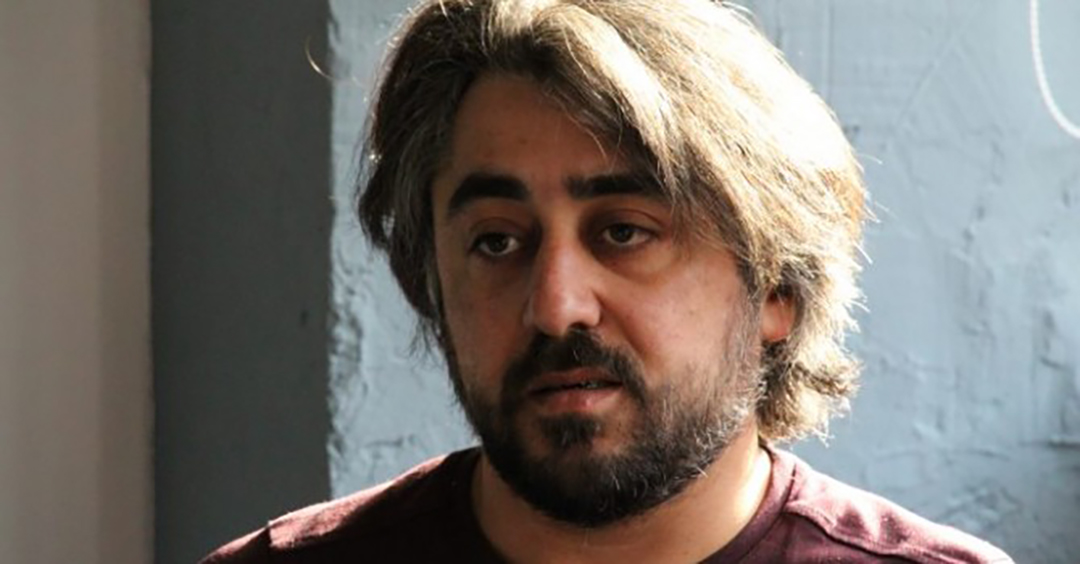

The Georgian Border Police has denied entry to three Armenian journalists travelling to Georgia to study the influence of Russian propaganda in the Samtskhe-Javakheti Region.
Yuri Manvelyan, Tigran Khachatryan, and Tigran Hakobyan from independent news agency Epress were turned away from the Bavra-Ninotsminda checkpoint on 11 October.
The journalists were going to Akhalkalaki to work on a joint project with their colleagues from Tbilisi-based news agency NewCaucasus. The project is financed by the Institute for War & Peace Reporting (IWPR), an international media network, and involves studying the influence of Russian propaganda in Samtskhe-Javakheti, a region of Georgia with a large ethnic Armenian population.
According to Manvelyan, who is editor-in-chief of Epress, once they found out the group were journalists, Georgian border police officers took them to their office and interrogated them for more than 4 hours. He said the officers repeatedly demanded they produce ‘accreditation’ and ‘permission to conduct interviews’.
Tamta Mikeladze, a lawyer and programme director at the Tbilisi-based Human Rights Education and Monitoring Centre told OC Media that such demands from the border police were ‘illegal and absurd’.
Epress reported that the border police were also against them bringing in their camera and sound equipment. The journalists told them that they had gone through that checkpoint with the same equipment to work on regional projects many times before, last time in August, but one of the officers responded that ‘the situation has changed now.’
According to the journalists, they were finally told that if they left their equipment on the Armenian side of the border they could return. But when they did so, the same police officer told them: ‘You don’t understand; you can’t enter Georgia.’
The journalists claimed that the officer argued he ‘already knew they were journalists, and they did not have accreditation’. He again refused to give them a reason other than: ‘The chief, who decided not to let you in, hasn’t changed his mind.’
When asked who made the decision, the officer reportedly said: ‘Your work is not wanted here and you are forbidden from journalistic activity in Georgia. You shall not enter.’
A spokesperson for the Interior Ministry told OC Media that Manvelyan and his colleagues were denied entry in accordance with Paragraph ‘i’, part 1 of Article 11, of the law ‘On the Legal Status of Foreigners and Stateless Persons’, which reads ‘other cases provided for by the legislation of Georgia’.
‘They don’t want us to cover this topic’
Yuri Manvelyan told OC Media he would not like to indulge in any conspiracy theories, but he could only speculate on what might have ‘changed’ since their last visit to the region six weeks ago.
‘Now you have a new Prime Minister with a law enforcement background, Syria is being bombed again, the leaders of the Eurasian Economic Union had their summit in Yerevan… But what does this have to do with us?’ said Manvelyan.
He said he hoped that the border police officers would look through the Epress website and realise that he and his colleagues do not play ‘information wars’.
‘And yet, we don’t necessarily need the Georgian or any other government to like us to earn permission to travel with a visa-free regime’, Manvelyan said. ‘If there is no order from above, then it means that journalists from Armenia who travel to Javakheti through Bavra are evil by default’.
Nino Gogolashvili, a journalist from NewCaucasus told Akhaltsikhe-based TV channel Metskhre Arkhi (TV 9): ‘It’s possible that all this is connected to the topic that the Georgian and Armenian journalists are working on together. They don’t want us to cover this topic in the region.’
Irakli Chikhladze, editor-in-chief of NewCaucasus, told OC Media that during their research for the project, they found that Vladimir Khomeriki, the president of the Russian-based foundation Unity of the Russian and Georgian People, visited the region in May 2019 and registered an NGO in Samtskhe-Javakheti with the stated goal of ‘uniting the Georgian and Russian nations on the basis of traditional values’.
According to Chikhladze, Khomeriki has a history of ‘justifying the Russian military aggression against Georgia in 2008’.
‘It’s shameful that they let this kind of person into our country and deny entry to Yuri Manvelyan, just a normal journalist’, Gogolashvili told TV 9.
‘Illegal and discriminatory restrictions’
Article 11.1/i of the Law on the Legal Status of Aliens and Stateless Persons has been used in the past by the Georgian authorities to justify denying journalists entry into Georgia.
The paragraph has vague provisions for denying entry based on ‘other cases considered by Georgian law’, indicating that the authorities found no problem with their documents and did not consider them a threat, as prescribed in other parts of Article 11.
Aslanbek Dadayev, a journalist from RFE/RL’s Chechen-language service, Radio Marsho, has been denied entry to Georgia several times, last time in November 2018.
[Read more on OC Media: RFE/RL journalist denied entry to Georgia]
In January, the EMC submitted a lawsuit against the Border Police in Tbilisi City Court in order to defend Dadayev’s right to freedom of movement.
EMC said in their statement that Paragraph ‘i’ was ‘indulging arbitrary administrative practice that gives [the Interior Ministry] the opportunity to apply illegal and sometimes discriminatory restrictions of freedom of movement of various social groups and persons’.
EMC’s Tamta Mikeladze told OC Media that EMC was currently representing several other journalists in court who were denied entry into Georgia, including Azerbaijani Meydan TV journalist, Jamil Ali.
She said that the same approach was applied to political activists and journalists who have been critical of the authorities in other Caucasus countries.
Mikeladze added that the authorities often used the same justification in employing this ‘blanket’ approach of denying entry to visitors from certain Asian and African countries.









